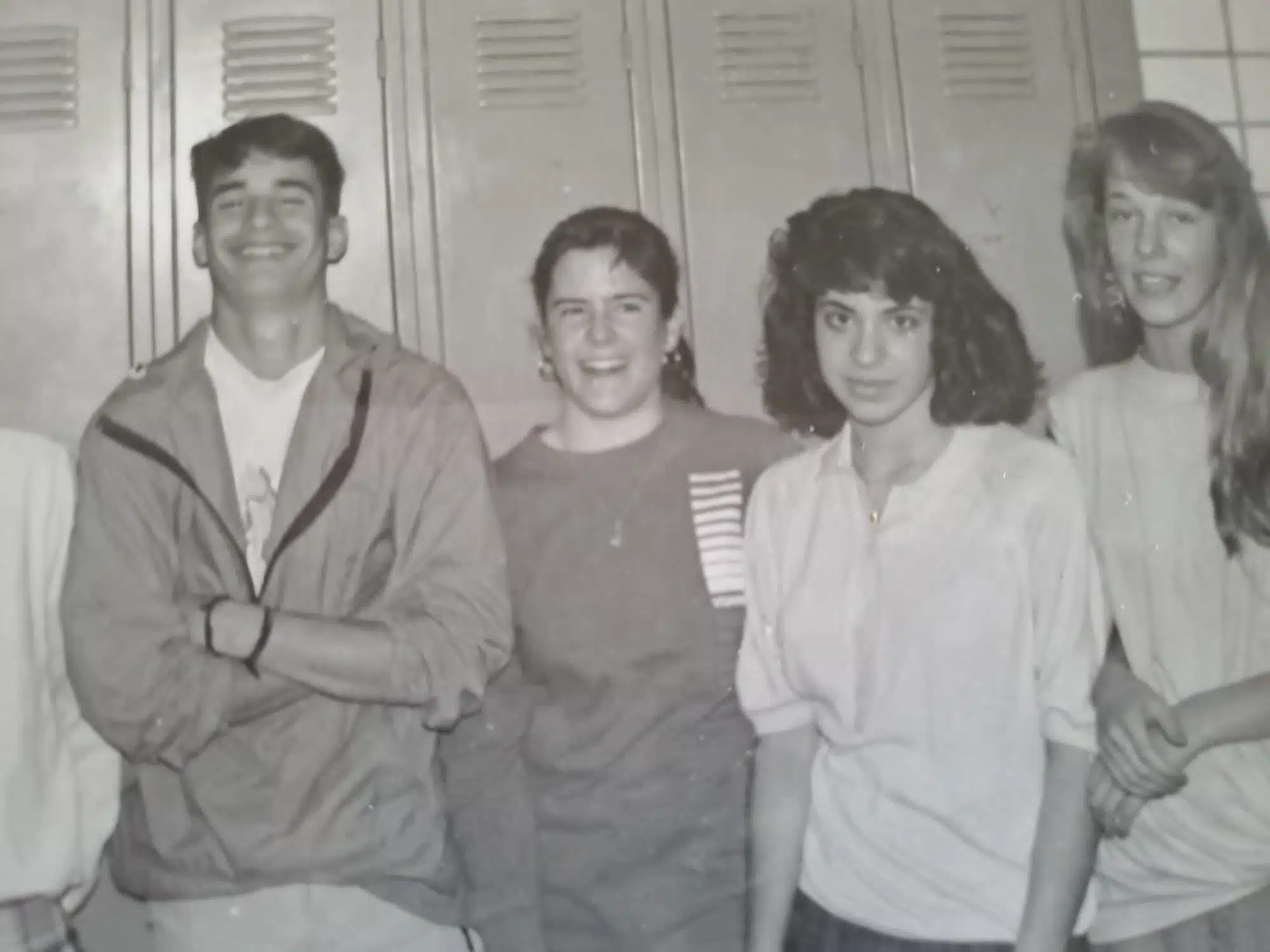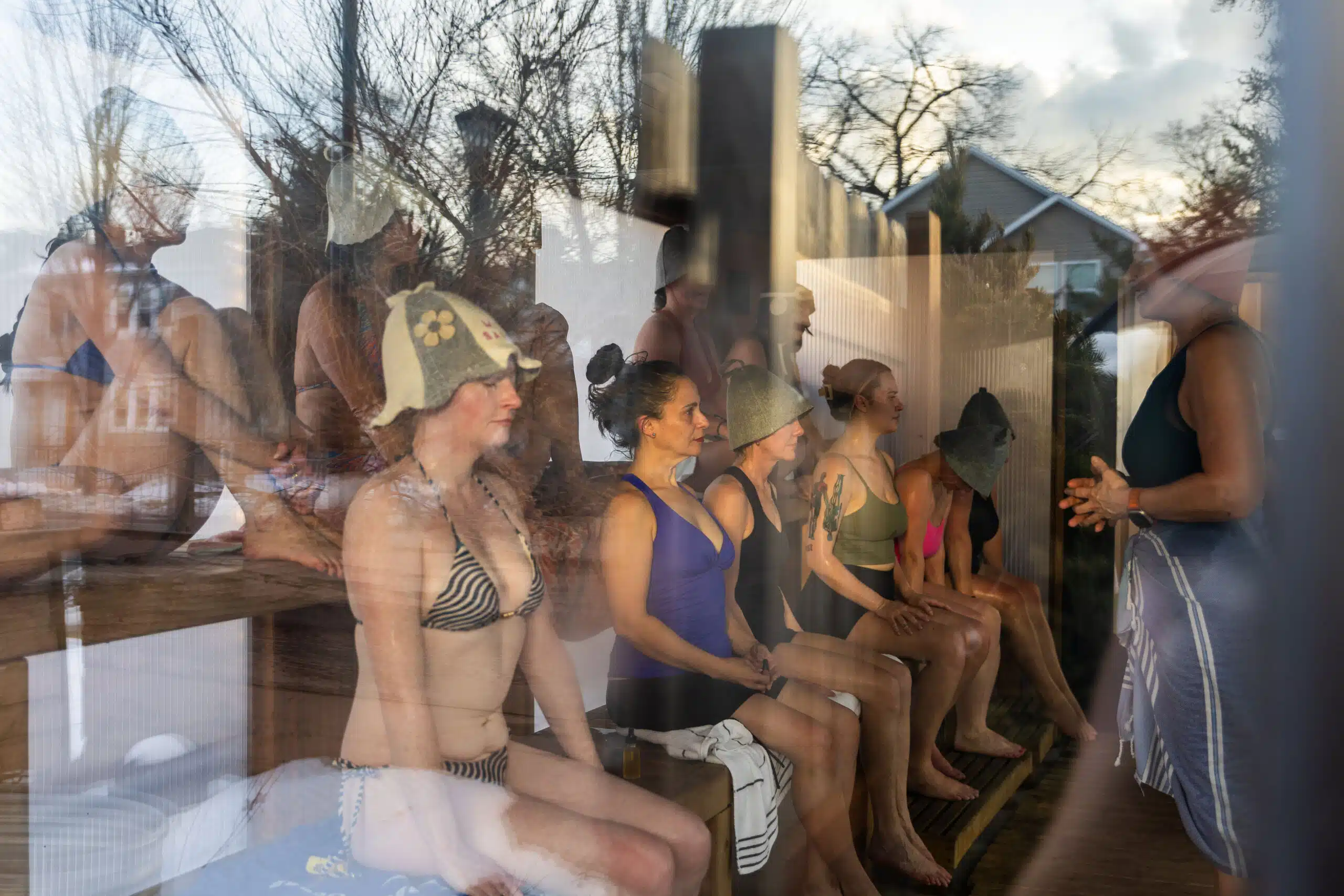Very early in my alcohol-free journey I discovered that having a daily routine was a powerful way to keep myself on track in my sobriety and in my life. The more I leaned into having a routine and started to enjoy its benefits, the more I began to crave it. Developing—and sticking to—a routine helps me thrive, keeps my head clear, moves me toward achieving my goals, and keeps me emotionally and physically healthy. Over time my routine has become a daily non-negotiable. I am a true believer. My routine—particularly in the early mornings—keeps me grounded and sets me up for success and I, in turn, protect it and make space for it each day.
“Morning routines are the ‘in’ thing in health and wellness right now…and not without reason,” writes Alicia Gilbert, founder of the blog Soberish. “For [many of us, early sobriety can be a] confusing, frustrating time…. Morning routines keep you busy and focused on making positive changes and help you heal from the damage alcohol has done to your mental and physical well-being.”
Since putting my wine glass down for good more than five and a half years ago, I traded hangovers for early mornings and haven’t looked back since. According to James Clear, author of Atomic Habits, we are each allotted about 25,000 mornings in adulthood. The way I see it, I already wasted at least 1,825 mornings—five years’ worth—recovering from drinking the night before. I don’t plan on wasting one more.
The first few minutes and hours after I wake up set the tone for my day (and often the whole week). In the early morning hours, my creative energy is high and my head is clear. I find this to be the best time to be productive. By engaging in consistent morning practices, I’ve trained my brain to anticipate and embrace the day’s challenges with resilience and a sober mindset. I know that I could not accomplish all the things I do each day without a structured and disciplined morning routine.
Since I first developed my morning routine I’ve noticed many positive changes:
- I start my day with intention.
- I am more focused and motivated.
- I have increased energy, productivity, and positivity.
- I avoid “decision fatigue.”
- I have much less stress.
- I enjoy increased overall physical, emotional, and mental health.
- I feel like I have more control of my life.
- I experience more effective time management.
- Much of my work is done before anyone else in the house gets up.
So what does this routine look like? I share it here to inspire you to create a routine of your own that meets your individual needs.
4:30AM
Self care and gratitude
I usually wake up right before my alarm goes off (although I still set one as a backup). I start the day by drinking eight ounces of water with lemon, and I follow this with 15 minutes of journaling. Then I enjoy my aromatic Kauai Island Sunrise coffee with frothed milk.
5:00AM to 10:00AM
Work and planning
Before moving on to the next part of my day, I make my bed (always) and prepare a healthy breakfast. For about four years I have had a daily gratitude practice with my friend Ann Dowsett Johnston, author of Drink. We write down five things we are grateful for, including the opportunities provided by our challenges. This is a highlight of my mornings.
I attend or facilitate recovery support meetings six days a week. Between meetings, I spend time writing, producing social media posts for This Side of Alcohol, creating my weekly newsletter, researching articles I’m working on, and preparing topics for our ZPE Connect community.
I check and answer emails, study the curriculum if I am teaching that day, and write hand-written letters to the people I love for birthdays, anniversaries, soberversaries, or just because.
While I’m working, I create a soothing atmosphere by lighting a candle. Its subtle flicker is a reminder to take care of myself. Right now, I am burning one my friend Laura sent from North Carolina called “spiced cranberry.” It smells wonderful and reminds me of our special friendship.
11:00AM
Walking
At least five days a week I go on a three-and-a-half mile walk. This habit helps me clear my head, keeps me physically fit, and supports my mental and physical well-being.
The structure of my routine, somewhat paradoxically, creates a lot of freedom in my life. I get all of my important tasks done before noon, leaving the rest of the day (when I am not teaching) for anything I choose to do. Sometimes that means taking a nap, something I never did—or felt I deserved—when I was drinking. I also love to ride my bike. At least every other day I take a peppermint Epsom salt bath.
The recovery organization 7 Summit Pathways offers four helpful steps for establishing a morning routine. Here I’ve improvised on them and added an important fifth one that I follow:
1. Tailor your routine to your own needs and goals
Start with intention, which means getting familiar with how you want to feel and what’s important to you. Make a list of the things you’d like to include in your morning routine and then work out how to (realistically) fit each into your schedule while being mindful not to take on too much. Decide what will make you feel focused, organized, calm. Planning out your schedule will give you a good idea of what time to get up each morning and will keep you on track.
2. Prepare at night for a successful morning
Having a bedtime routine sets you up for a successful morning. I go to bed regularly at 9PM. I start winding down at 8PM by reading for about 30 minutes. Then I prioritize my tasks for the next day by writing out a simple “to do” list, which often includes outlines for any writing I want to complete. I check my planner, plug in my devices, set out any materials I will need for the next day, and place them on my organized desk. This practice saves me hours of work and I’m less likely to forget something important. Just before going to bed I set out my lemon water. I end my night by listening to meditations on the free app Insight Timer. (My favorite is Yoga Nidra For Sleep with Jennifer Piercy.) Other ways to prepare for the following day include preparing breakfast foods like hard-boiled eggs or overnight oats, and laying out clothes for the morning. Schedule this preparation time to help keep you feeling organized and successful.
3. Nourish your spiritual, physical, and mental health
According to 7 Summit Pathways, self-care is often the first thing to go when you’re rushing to get out the door in the morning, or stressed in general. However, this principle is essential to your recovery. Find time to address your spiritual, physical, and mental wellbeing. First thing in the morning, take a few moments to meditate or pray. Make time to eat a satisfying breakfast. Give yourself some quiet time and perhaps review what you’d like to accomplish in the day ahead.
4. Keep it consistent
Setting up a plan and sticking to it day after day creates a habit that eventually becomes second nature. Keep it simple at first and, once you’ve established a routine, you can see what’s working or not working and adjust as needed. I keep an eye out for pitfalls or changes in my environment that might knock me out of my routine and try to prepare for them. I find it’s particularly easy to get off my schedule when traveling which, in turn, can make it difficult to resume when I get home. To counteract this I pack the things I need to keep my routine as constant as possible. This includes bringing my Keurig, coffee pods, and milk frother with me to start my day the same way I do at home.
Whether I’m traveling for work, attending a conference, or am on vacation I try to be as consistent as possible. If I am with other people, I inform them of my morning habits. I’ve been discovering that more and more people have routines of their own.
5. Tell others
Telling others about your morning routine creates connection—and boundaries—and gives you the opportunity to build a support network. Similar to creating new habits in sobriety, it’s a good idea to tell trusted people in your life what is important to you. Let them know what to expect and how they can support you to whatever degree possible.
My husband Paul is used to my routine and he honors it. He often brings me a second cup of coffee during my writing hours and we chat for a short time. My grandkids, friends, and colleagues also know my routine and know when I’m available and when I will be working.
In my book, This Side of Alcohol, I share a story from when I was about 15 months alcohol-free and my friend Stacy came to stay with me at my cabin.
When Stacy and I made plans to spend a couple of days here at the cabin, I panicked. I have become fiercely protective of my morning routine because my sobriety depends on structure…I want Stacy to feel at home and comfortable, but I [also need the] routine that has kept me on my sober path for almost 15 months. I talked with Stacy, told her what I needed, and she was totally supportive. The old me would have ceded to “people pleasing” and…probably would have never brought it up.
How could you benefit from creating a morning routine? Use the worksheet on the next page to map out your needs, preferences, and ideas. ***




